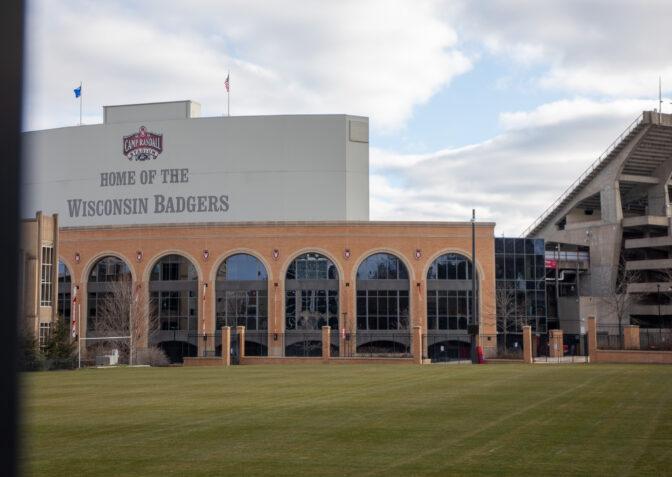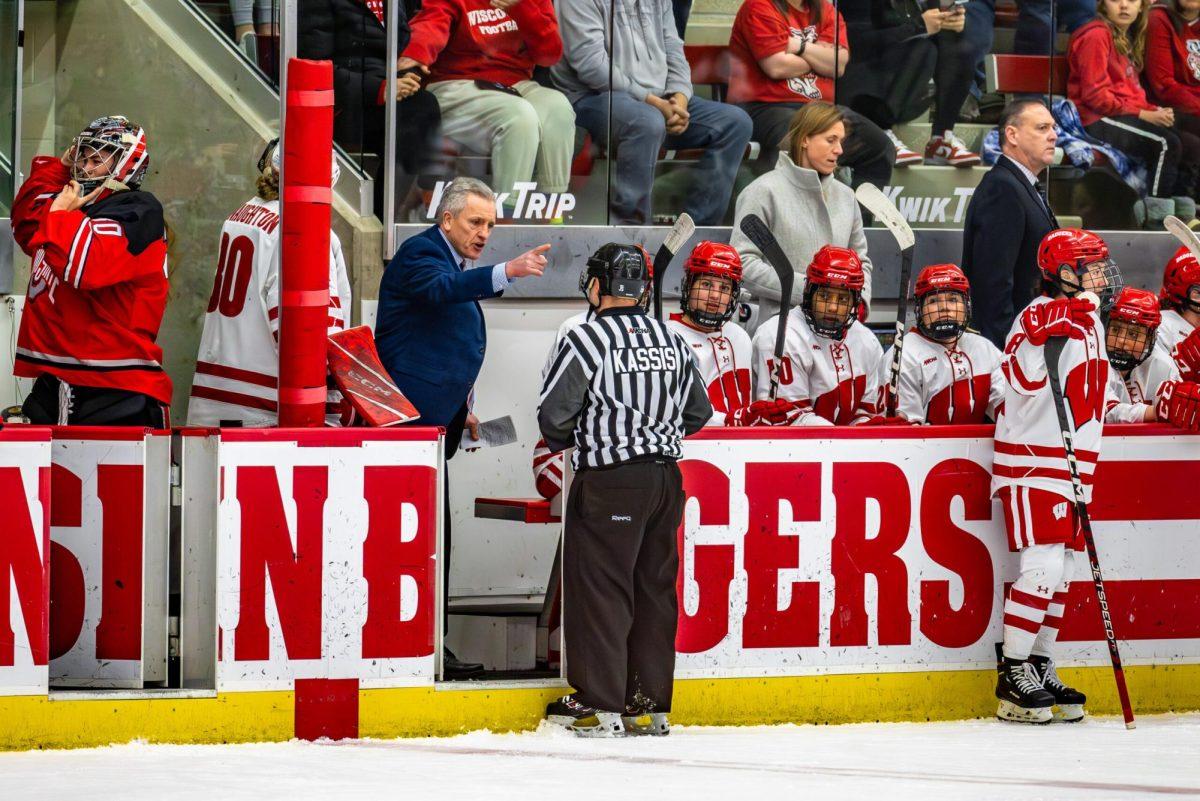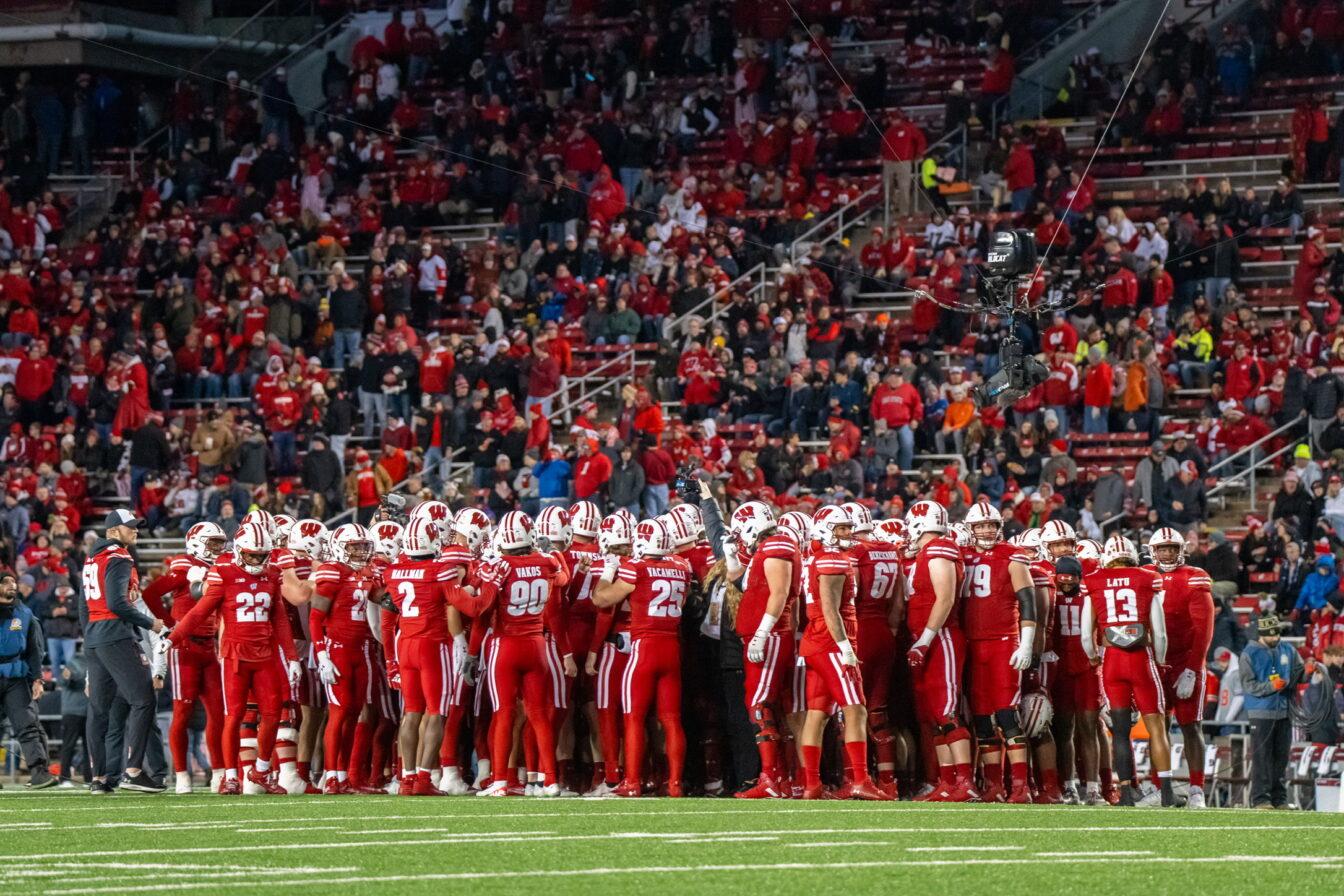The University of Wisconsin–Madison Curling Club finished its season on the highest note possible — winning the 2024 College Curling National Championship. It was the club’s first official year as part of the University Recreation & Wellbeing system, making their trip to Rice Lake, Wisconsin’s small, crowded curling center March 10 even sweeter.
The team got its start when UW–Madison sophomore Mason Maeder gathered a few interested people via the “Class of 2026” Snapchat group last year. Curling remains a popular sport in Wisconsin, so Maeder was surprised to see UW–Madison didn’t have a team.
The group kept growing — culminating into 23 people attending regular practices this season. Maeder says there are 110 people on the team mailing list, who he hopes will be able to get involved with the team in the future.
Experience levels differ within the team. Some curlers joined with minimal to no experience, so Maeder ensures the team has multiple sheets of ice at the curling center to allow beginners a space to learn. The team also begins practices with an hour of training purely on skills like throwing, releasing and sweeping, all before ending with an hour of scrimmage.
“That’s really the best opportunity for the new curlers,” Maeder said of their scrimmages.
Other members curled in high school, like Maeder and Emily Brost.
A few members were quite skilled, like Mitchell Armstrong — who’s had an abundance of experience in the sport.
“Mitch has been curling since he could walk, I believe, so he’s super experienced,” Maeder said.
For those with experience, they had an opportunity in the new club to curl competitively. Six curlers including Maeder, Brost, Armstrong, Clayton Nehls, Colin Packard and Alex Ge made up the team that competed at nationals.
Despite their experience and skill, things were somewhat rough for the team. Due to the fairly scarce opportunities to play curling post-high school, they needed time to coalesce and truly play together.
“One of our biggest struggles was just getting them to work together on a team that functions well,” Maeder said. “Just because we had really good skill and really good experience does not mean that our team was ever excellent.”
For a team that had only just been assembled, they needed time to get into the swing of things.
They were great on their own and on paper as Maeder said, but they had room to grow together.
“Weekly practices were big for us,” Maeder said about bonding as a team, adding that they went to every tournament they could, no matter how far. With hours accumulating at practice, on the road and at tournaments, things were beginning to come together.
The team traveled to compete at six different tournaments, known as bonspiels, including one as far away as Lincoln, Nebraska, over the course of about five months.
They first met for practice after Halloween with their first bonspiel coming right before the week of Thanksgiving.
“I don’t think we won a single tournament up until nationals,” Maeder recalled. “We would get really far in finals and then we’d lose to Minnesota or Michigan Tech.”
And so the Border Battle extended into curling. Rivals in every sport and field, the University of Minnesota and UW–Madison now have curling to fight over. Michigan Tech University represented a different sort of rival.
One of MTU’s players — Gracie Kohn — curled with Maeder in high school. An excellent curler and curling teacher, Kohn and MTU got the best of UW–Madison twice, including in a huge comeback win.
“They were about to shake, they were about to give up,” Maeder said about one of their matches against MTU.
UW–Madison had a commanding lead, but MTU managed to score a “four-ender” and a “three-ender” to win the match by one point.
An end is similar to an inning in baseball and softball. Each match consists of ten ends, where each team throws eight stones. The team with the stone closest to the center wins that end, with the winning team awarded points by the number of stones they have closer to the middle than the opponent. Maeder says scoring four, or a “four-ender,” is an excellent end.
“It was just those losses that it kind of put in our heads, ‘We’re not as good as we thought we were,’” Maeder said about their close losses to MTU and Minnesota. “But then working throughout the year, just building relationships and the synergy between our really experienced players … we were able to get a really good team together in the end.”
While they weren’t able to win a regular season tournament, they’d still assembled a great team. Hopes were high as they made their way north to Rice Lake for nationals. Rice Lake — a town of less than 9,000 inhabitants — didn’t have extensive space in their curling center.
Situated in the thick of the Northwoods, Rice Lake is known more for its tourist appeal. Still the venue made for an exciting environment with a wide variety of attendees.
“It was fun to see people from all over the place … hanging out and coming together for a weekend of curling,” Maeder said.
The tournament lasted three days, March 8-10, and fielded 16 teams from across the U.S.
After defeating Minnesota and UW–Stevens Point, UW–Madison found itself in the finals. Maeder says his team was surprised to see Princeton University in the finals, who had to defeat MTU to reach that point.
“We had hammer [UW–Madison went second and therefore threw the last stone], so letting Princeton steal one is not the best start for us, but it’s also not the worst,” Maeder said, as Princeton was up one after the first end.
The match was intense, with both teams having opportunities to pull away. Maeder recalled a moment in the game where Princeton could’ve had a “four-ender.” They missed a crucial takeout, however, meaning Princeton was unable to remove some of UW–Madison’s stones. UW–Madison was able to “guard up” to finish the end on top and eventually the match.
The curling team is on pause for now, with practices resuming next fall while Maeder and the team work out future budgets. Maeder hopes to lay the foundation of a longtime club and encourages prospective members to join.
“[Curling] is one of the most welcoming and accepting sports,” Maeder said.
















